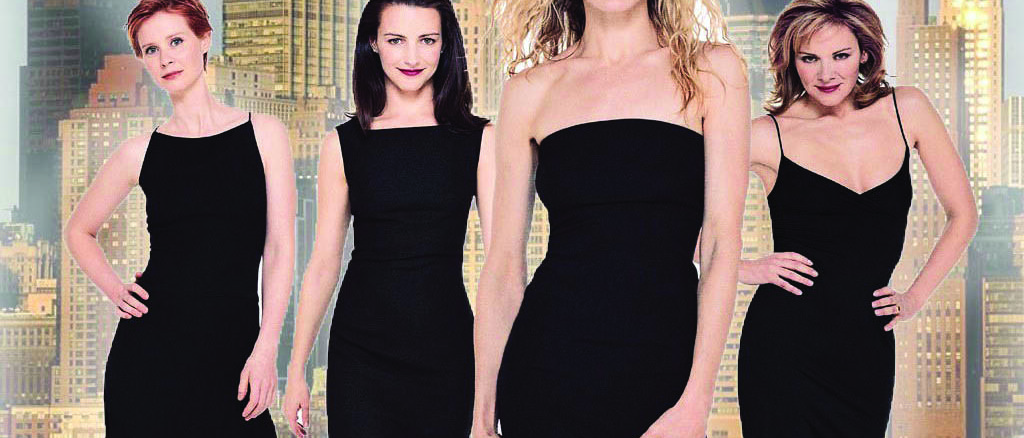
You would like to think that in 21st century society being called a feminist wouldn’t cause offence, rather it would be celebrated, but ask the majority of females if they are feminists and there will be a number who recoil in horror at the thought of being associated with such a movement.
The definition of feminism is plain and simple; the advocacy of women’s rights on the grounds of equality of the sexes. The movement wants women to have the same opportunities as men without being discriminated on the basis of their gender. Yet somehow, throughout the last few decades, the very definition has been diluted and misinterpreted to the very point were most people don’t have a clue about what it means. You think of a feminist today and you picture an angry, man-hating, bitter woman who doesn’t shave her underarm hair. That’s the stereotypical feminist in today’s society because if you wear make-up and heels then surely you can’t be for advancing women’s rights?
The media has drip fed images of attractive women in film, TV and music and merely used them as sex objects or supporting roles for so long that it has become part of the make-up of the entertainment industry. So much so that even famous women refuse to question inequality.
According to Lily Allen, “feminism shouldn’t exist because we are all equal now”, Katy Perry said she wasn’t a feminist but believed in “equal rights” and Beyoncé seems to be a feminist one year and not one another year. When female, global superstars appear to shy away from the matter or separate themselves entirely from feminism, it sends a clear message to the public: it’s not cool to be a feminist. When Lily Allen released her single, ‘Hard Out Here’, which was about double-standards in the music industry, she was applauded for honesty yet a few months later she changed her opinion and in the aforementioned quote disagreed with the idea of feminism completely. For someone who regularly speaks out against the status quo, a sudden U-turn on a big issue makes no sense. But then again we can’t blame these women because, the tag line of, ‘feminist’, won’t exactly win you many fans.
Of course, maybe ‘Buffy’ creator and director Joss Whedon may have offered another explanation as to why so few will openly admit to being feminists. Speaking at an Equality Now conference in late 2013, the American opened his key note speech by saying he hated feminist; not feminists but the word ‘feminist’. It’s not a pleasant sound to the ear, (unlike ‘the Taliban’ according to Whedon) and is unfortunate enough to end with that horrible ‘ist’ sound. Other terms that share the ‘ist’ include ‘racist’, ‘sexist’, and ‘fascist’; all words that are synonymous with ignorance, anger and disdain. It’s rather unfair that a movement that champions equality has such an uphill battle in encouraging people to support it.
If it is not an angry, man-hating model, then modern feminism is loosely based on the Sex and The City Model. ‘Sex and the City’ was described as a show about sexually active, cosmopolitan women, who are independent and career-driven. But although the book on which the series was based was written by a woman, the script writers of the show were predominantly male. The four main characters are basically the ideas of men as to what a 21st century woman should be. Nearly every episode seemed to revolve around the characters searching for a man in their lives. Even though the show was meant to convey the confidence that women possess, it still managed to portray how easily a woman’s life and emotions could spiral out of control, the second she was left single. Carrie Bradshaw’s whole career was based around writing about men. Even by the time the series has finished, Samantha, who was the biggest advocate against marriage and relationships with men, is in a steady, happy relationship.
It appears a lose/lose situation for women; either be the angry woman or be the Sex and the City woman. There is no middle ground.
When people do speak out about inequality, they get smacked down and are told to take it on the chin. Laura Bates is the creator of the Everyday Sexism Blog, which allows people to share their stories of sexism and harassment. Before she started the blog, she was told it was pointless because “the fight for equality was already won”. She wrote in her Guardian column that the reaction from both sexes on the idea of the blog was one of indifference.
“Sexism doesn’t exist anymore,” people told me. “You’re uptight, or frigid… you really need to learn to take a compliment.
People didn’t want to acknowledge it, or talk about it. And it wasn’t just men who took this view; it was women, too, telling me I was being oversensitive, or simply looking for problems where there weren’t any.”
Even small acts of sexism are so ingrained in society that we have come to expect it and even begrudgingly accept it. But statistics don’t lie; we haven’t come as far as we would like to think.
There has never been a female Taoiseach or a female US president; one in three European women experience physical or sexual violence since the age of 15 according to European Fundamental Rights survey and 67% of athletes felt that the public and media value a sportswoman’s appearance over her sporting performances, 76% said that pressure to look good influenced their diet and a further 80% said they felt they needed live up to a preferred body image, according to a BT Sport survey.
So maybe there is a lot to be angry about. Society needs to let us be angry about inequality without criticising this supposed ‘feminist agenda’. And if women want to get angry while wearing heels; then that’s ok too.
Emily Bodkin




Leave a Reply